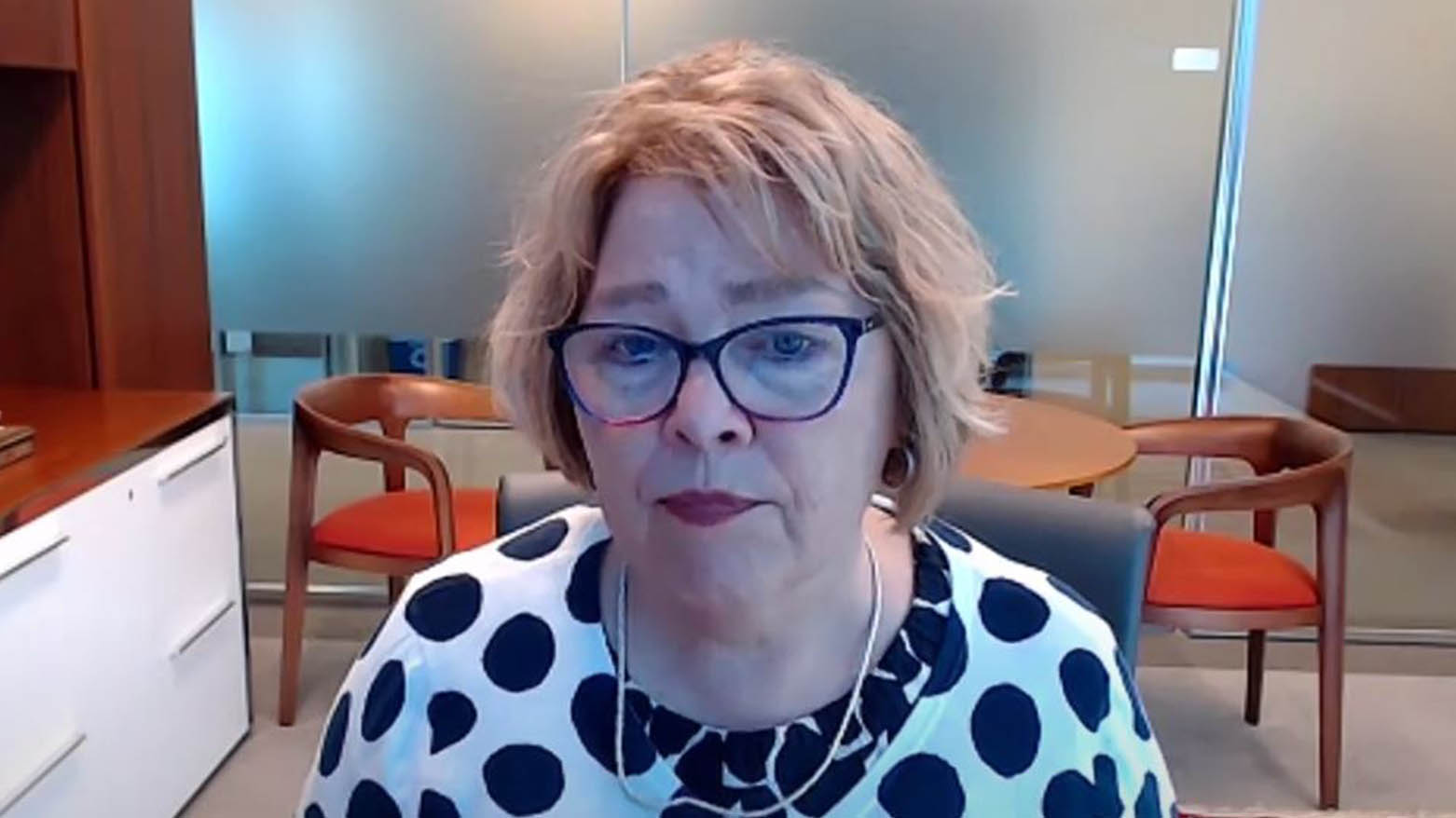Barbara Leaf Highlights Strong US-Kurdistan Region Relations, Backs Energy Partnerships and Economic Cooperation
Leaf described the recent entry of U.S. companies into Kurdistan Region’s energy sector as “good news for everyone,” pointing to both the economic and diplomatic benefits such partnerships bring.

ERBIL (Kurdistan24) – In an exclusive interview with Kurdistan24 on Monday, Barbara Leaf, former U.S. Assistant Secretary of State for Near Eastern Affairs, emphasized the growing strength of ties between the United States and the Kurdistan Region, praising recent American business involvement and underlining long-term strategic interests in Iraq.
Leaf described the recent entry of U.S. companies into Kurdistan Region’s energy sector as “good news for everyone,” pointing to both the economic and diplomatic benefits such partnerships bring. “I’m always delighted to hear news of good U.S. firms getting a piece of business, whether in Kurdistan Region or elsewhere in Iraq,” she said. “It’s really important and very significant.”
She noted that the growing collaboration in the energy field not only supports stable global energy markets, but also deepens U.S.-Iraq and U.S.-Kurdistan Region ties. “These energy ties also produce another net benefit beyond energy security: a thickening of ties between the U.S. and Iraq, and between the U.S. and the Kurdistan Region,” she added.
Commenting on the halted Iraq-Turkey Pipeline (ITP), Leaf said the issue involves political and legal complications. “The U.S. has always been willing to lend support to a productive dialogue,” she noted, stressing that the decision ultimately lies with Iraq, Turkey, and the Kurdistan Regional Government (KRG).
Regarding the recent U.S. business interest in the Kurdistan Region, Leaf said, “This seems to be a vote of confidence by these firms, which is a good sign,” noting that such investment decisions reflect favorable security, political, and legal conditions.
“I fully expect the [Kurdistan Region] Prime Minister’s visit to Washington to take place in the context of a broader regional evaluation, which includes long-standing American interests in Iraq,” she said.
Leaf reaffirmed the continuity of U.S. engagement with Iraq, including after the withdrawal of combat forces in 2011. “We still have training forces in Iraq at the government’s invitation, but we also have diplomatic and economic interests that run in parallel,” she explained.
She acknowledged that every new U.S. administration reexamines its foreign deployments, including troop levels, but reaffirmed the value of ongoing missions such as supporting Iraqi and Kurdish security forces. “We are continuing a vital mission: ensuring that Iraq’s forces—whether the Iraqi security forces or the Peshmerga—have the capabilities to defend the people and to fight any resurgence of terrorism, like ISIS.”
Leaf also praised the decades-long people-to-people ties between the U.S. and the Kurds. “There’s been a strong, almost separate, people-to-people relationship between the U.S. and Iraqi Kurds for over 30 years,” she said. “Kurdish forces fought tenaciously and heroically to help rescue the country from ISIS. That remains an important part of the picture.”
On the economic front, she encouraged deeper engagement. “When American businesses invest and partner with local actors, it builds not only profits but also people-to-people ties, which are very important,” Leaf said.
Touching on the evolving dynamics in Washington, she acknowledged the presence of more isolationist voices in U.S. politics but emphasized that many in Congress and government continue to value the relationship with Kurdistan Region. “Every new president needs to be reminded by regional leaders about the value of these relationships and how they serve mutual interests.”
Leaf also reflected on the strategic symbolism of the new U.S. Consulate in Erbil. “It was designed to reflect the U.S. stake in the continued importance, stability, and prosperity of Iraqi Kurdistan. I believe that interest remains,” she said.
On the enduring question of Kurdish autonomy within Iraq, Leaf reiterated long-standing U.S. policy. “We continue to believe that the best outcome for both Kurdish and Iraqi interests lies in a unified Iraq, where Iraqi Kurds have the fullest ability to manage their own affairs with a high degree of self-governance.”
She concluded by praising efforts by the Kurdistan Region’s leadership to strengthen ties with Baghdad. “I’m glad to see that both the Prime Minister and the President of the Kurdistan Region have worked hard to stabilize and improve those ties. I think that will yield not only peace dividends but also prosperity and security for both the Kurdistan Region and federal Iraq.”
